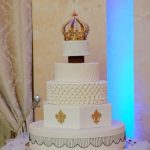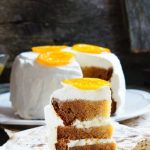Are you looking to add a touch of elegance and beauty to your cakes? Learn how to decorate a cake with fondant flowers and take your baking skills to the next level. Fondant flowers are not only visually stunning, but they also add a delightful sweetness to any cake. Whether you are an experienced baker or just starting out, mastering the art of creating and arranging fondant flowers will elevate your cakes to new heights.
Using fondant flowers for cake decoration allows for endless creativity and personalization. With the right materials, tools, and techniques, you can bring any cake to life with delicate and lifelike blossoms that are sure to impress. This article will guide you through the process of preparing fondant for flower making, creating different types of fondant flowers, utilizing color techniques, and ultimately decorating your cake with these beautiful edible embellishments.
The impact of fondant flowers in cake decoration goes beyond just visual appeal. They can turn a simple dessert into a work of art and make any occasion feel more special. So, if you’re ready to take on the challenge of transforming your cakes with stunning fondant flowers, read on as we dive into the world of cake decoration with these lovely edible blooms.
Materials and Tools Needed for Fondant Flower Cake Decoration
Decorating a cake with fondant flowers can add an elegant and sophisticated touch to any special occasion. In order to successfully create beautiful fondant flowers for cake decoration, it is important to have the right materials and tools at your disposal. The following are the essential items you will need to make stunning fondant flowers.
The first essential material needed for fondant flower cake decoration is, of course, fondant. This pliable icing is what allows you to sculpt and shape intricate flower designs.
You can purchase pre-made fondant in various colors, or you can make your own using marshmallows, powdered sugar, water, and shortening. Other necessary materials include a rolling pin for rolling out the fondant, cornstarch for dusting work surfaces to prevent sticking, and edible glue or vodka for adhering different parts of the flowers together.
In addition to the basic materials, there are some specific tools that will greatly aid in creating realistic-looking fondant flowers. These tools include a variety of flower-shaped cutter sets, petal cutters in different sizes and shapes, floral wire for structural support, a ball tool for thinning edges of petals, foam pads for shaping petals and leaves, as well as a drying rack or tray where finished flowers can be left to set and dry.
By having these materials and tools on hand, you will be well-equipped to start making beautiful fondant flowers for cake decoration.
Preparing the Fondant for Flower Making
When it comes to creating beautiful fondant flowers for cake decoration, it is crucial to properly prepare the fondant for shaping and molding. The first step in preparing the fondant is to ensure that it is at the right consistency. You want your fondant to be pliable and easy to work with, but not too soft that it loses its shape when molded.
To achieve the ideal consistency, start by kneading the fondant on a clean work surface dusted with powdered sugar. This will prevent the fondant from sticking and becoming too messy. Knead the fondant until it becomes smooth and supple, but be careful not to overwork it as this can cause air bubbles.
Once the fondant is at the right consistency, you can begin coloring it if desired. Gel food coloring works best for tinting fondant as it does not alter the texture of the fondant.
Add a small amount of gel food coloring at a time and knead it into the fondant until you achieve your desired color. Remember that a little goes a long way when it comes to coloring fondant, so add the color gradually to avoid making it too dark.
| Step | Details |
|---|---|
| Kneading Fondand | Knead on a clean surface dusted with powdered sugar until smooth and supple. |
| Coloring Fondant | Use gel food coloring and add gradually while kneading until desired color is achieved. |
Creating Different Types of Fondant Flowers (Eg Roses, Daisies, Tulips)
Fondant flowers are a stunning and versatile way to decorate cakes, adding a touch of elegance and sophistication to any dessert. One of the key skills in cake decorating with fondant is the ability to create different types of fondant flowers such as roses, daisies, and tulips. Each flower type requires specific techniques and tools to achieve a realistic and beautiful result.
When creating fondant roses, it is essential to start with a small ball of fondant that will serve as the center of the flower. From there, thin petals are shaped and added one by one, gradually building up the rose shape. Daisies, on the other hand, require a plunger cutter to create uniform flower shapes before adding a contrasting colored center. Tulips involve shaping separate pieces of fondant into petals and then assembling them around a central stem.
Different types of flowers may also involve various coloring techniques including dusting, painting, or airbrushing the fondant pieces before assembly. These methods can add depth and dimension to the flowers, making them appear more lifelike on the cake.
Overall, mastering the art of creating different types of fondant flowers takes practice and patience but can elevate your cake decorating skills to new heights.
| Fondant Flower Type | Techniques |
|---|---|
| Roses | Shaping thin petals around a center |
| Daisies | Using plunger cutters for uniform flower shapes |
| Tulips | Shaping separate pieces into petals around a central stem |
Color Techniques for Fondant Flowers
Using Gel Food Coloring
When it comes to adding color to fondant flowers, gel food coloring is the best option. These concentrated colors give you vibrant and intense hues without changing the consistency of the fondant. Start by adding a small amount of gel food coloring to the fondant and knead it well until the color is evenly distributed. Add more coloring as needed, but remember that a little goes a long way.
Dusting With Powdered Food Colors
Another method for adding color to fondant flowers is by using powdered food colors. These can be dusted onto the surface of the fondant using a soft brush, creating a soft and subtle color effect. This technique works particularly well for creating a natural-looking gradient on flower petals or leaves.
Airbrushing Fondant Flowers
For those looking to achieve more intricate and detailed color effects on their fondant flowers, airbrushing is a great option. With an airbrush machine and edible airbrush colors, you can create stunning ombre effects, delicate shading, and even intricate patterns on your fondant flowers.
By mastering these color techniques for fondant flowers, you’ll be able to add depth, dimension, and visual interest to your cake decorations. Experiment with different colors and application methods to create truly unique and beautiful fondant flowers for your next cake masterpiece.
Decorating the Cake With Fondant Flowers
Arranging the Fondant Flowers
Once you have created an assortment of fondant flowers, it’s time to arrange them on the cake. Start by envisioning how you want the cake to look and where you want the flowers to be placed.
You can create a cascade of flowers flowing down one side of the cake, a cluster of flowers on top, or even a border of flowers around the base. Use your creativity to come up with a design that complements the overall theme and aesthetic of the cake.
Adding Leaves and Other Accents
In addition to fondant flowers, adding leaves and other accents can enhance the overall look of the cake. You can make simple fondant leaves using leaf cutters or shaping them by hand. These leaves can be strategically placed among the flowers to add depth and visual interest. Additionally, consider incorporating small fondant details such as butterflies, ladybugs, or bows to further embellish the cake.
Securing the Fondant Flowers
To attach fondant flowers to the cake, use a small amount of edible glue or water as an adhesive. Gently press each flower onto the cake in its desired position, taking care not to damage any delicate petals. If needed, use toothpicks or floral wires to help support larger or heavier flowers. Be mindful of balance and symmetry as you place each flower, stepping back periodically to assess how they all come together as a cohesive design.
By following these steps and paying attention to detail, you can transform an ordinary cake into a stunning work of art with beautifully decorated fondant flowers. Mastering this skill will not only impress your friends and family but also provide endless opportunities for creative expression through cake decorating.
Tips for Arranging Fondant Flowers on the Cake
Arranging fondant flowers on a cake is the final step to completing the beautiful decoration. Here are some tips to help you arrange your fondant flowers like a pro:
- Start with a Plan: Before placing any flowers on the cake, have a plan in mind for how you want them to be arranged. Consider factors such as the size and color of each flower, as well as the overall design of the cake.
- Vary Sizes and Shapes: To create visual interest, use fondant flowers of different sizes and shapes. You can place larger flowers in the center or at the base of the cake, and smaller ones towards the edges or on top.
- Use an Odd Number: When arranging multiple fondant flowers, it’s often best to use an odd number (e.g. 3, 5, 7) as it tends to look more visually appealing than an even number.
Once you have all your fondant flowers ready, it’s time to start arranging them on your cake. Be patient and take your time to ensure that you achieve the desired look. Remember that practice makes perfect, so don’t be discouraged if your first attempt isn’t exactly how you envisioned it. With these tips in mind, you’ll be creating stunning cakes adorned with beautifully arranged fondant flowers in no time.
Troubleshooting
While decorating a cake with fondant flowers can be a delightful and visually stunning experience, it’s not without its challenges. There are common issues that may arise during the process of creating and applying fondant flowers to a cake. One of the most common problems is cracking or tearing of the fondant while shaping the flowers.
This can occur if the fondant is too dry or if it has been overworked. To prevent this issue, make sure to knead the fondant thoroughly before starting and work quickly to shape your flowers.
Another common issue when working with fondant flowers is color bleeding. This occurs when different colored pieces of fondant come into contact with each other and transfer their colors, resulting in a messy, muddled appearance. To avoid color bleeding, ensure that your hands are clean and dry when working with different colored fondants, and try to keep each piece separate until it is time to assemble the flower.
Additionally, humidity can also pose a problem when making and decorating cakes with fondant flowers. High humidity can soften the fondant too much, making it difficult to work with, while low humidity can cause the fondant to dry out and crack. It’s important to consider the weather conditions in your area when working with fondant.
If you’re in a high-humidity environment, you may want to use less water or shortening when working with your fondant. On the other hand, in low-humidity areas, lightly misting your work surface with water can help prevent drying and cracking.
By being aware of these common issues and knowing how to troubleshoot them, you can master the art of decorating cakes with fondant flowers and create stunning confections that will leave everyone impressed. Remember that practice makes perfect, so don’t be discouraged if you encounter these problems – keep experimenting and refining your techniques until you achieve flawless results every time.
Conclusion
In conclusion, mastering the art of decorating cakes with fondant flowers can take your cake decorating skills to the next level. By learning how to prepare and work with fondant, create different types of flowers, and utilize various color techniques, you can elevate the look of any cake.
With the tips for arranging fondant flowers on the cake and troubleshooting common issues, you can ensure that your cake decoration will be a success. Remember that practice makes perfect, so don’t be discouraged if your first attempts are not exactly as you envisioned. Keep refining your skills and experimenting with new designs to hone your craft.
Overall, incorporating fondant flowers into your cake decoration repertoire can add a touch of elegance and sophistication to any celebration. Whether it’s a birthday, wedding, or other special occasion, impressing your friends and family with beautifully decorated cakes is a rewarding experience. So go ahead, unleash your creativity and enjoy the process of creating stunning works of edible art with fondant flowers.

Welcome to my blog about home and family. This blog is a place where I will share my thoughts, ideas, and experiences related to these important topics. I am a stay-at-home mom with two young children. I hope you enjoy reading it! and may find some helpful tips and ideas that will make your home and family life even better!





